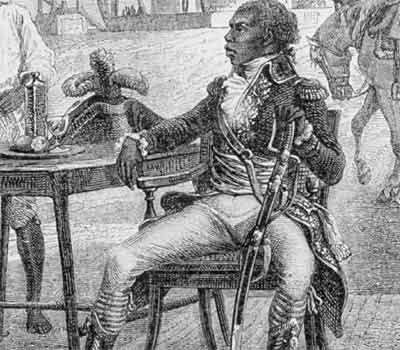Slavery in the Dominican Republic
differed from the other islands because the Spanish made considerably little
effort to make sure that slaves had no liberties or choices whereas other
colonies made it a priority to keep slaves down. Not to say that slavery in DR
wasn’t brutal but in comparison to Haiti, life was a little bit better.
Primarily because Haiti was actually a slave society and the planters were
genuinely out for maximum profit which would cause them to try to get the most
labor out of their slaves. One can say that this led to more brutality and a
lower quality of life because it all revolved around profit. Dominican slavery
was viewed more as forced labor; I realize that the terms are virtually synonymous
but ‘forced labor’ sounds less harsh, just like the lifestyle.
In DR,
Toussaint Louverture was the driving force behind the abolishment of slavery.
It’s a bit ironic that a Haitian was responsible for Dominican freedom but in
modern day society there still lies a deep hatred between the two sides of the
island. Slavery was officially abolished in 1822 (the Spanish managed to
reinstate slavery for a period of time after Toussaint’s reign). Although Toussaint led the revolution, it is
important to note that its was pushed by Gens de colour who experienced
inequality although they were technically free.
Upon the
abolishment of slavery, Haiti was the first black-led nation that was a result
of a revolution. However, the already shambled country was indebted to France for about 60 million
francs. In my opinion that was a slap in the face since the French enslaved the
island and made a plethora of money from it; for some reason they held the
country (that they raped and pillaged, by the way) responsible for the loss of
profit.
Although
Napoleon put and end to the works of Toussaint, the legacy lives on because it
created a change on the international stage. It was a sovereign state that
existed autonomously after colonialism, and that’s a pretty big deal. More
importantly it successfully led a revolution against a European empire. Events
that ensued after the revolution aren’t necessarily relevant but one could say
that uprisings occurring after were undoubtedly inspired by the Haitian
Revolution. The Dominican Republic would’ve probably been enslaved for a
significantly longer period of time if it weren’t for the Haitian; Toussaint
Louverture.
Thomas O. Ott, The Haitian Revolution 1789-1804 (Knoxville,
Tennessee:University of Tennessee, 1973); http://www.pbs.org/wgbh/aia/part3/3p2990.html
Freedom and Oppression of Slaves in the Eighteenth-Century
Caribbean
Author(s): Arthur L. Stinchcombe
Source: American Sociological Review, Vol. 59, No. 6 (Dec.,
1994), pp. 911-929
Published by: American Sociological Association
Stable URL: http://www.jstor.org/stable/2096375 .
Samuel Martinez
Published by: The Latin American Studies Association
Stable URL: http://www.jstor.org/stable/2503926


No comments:
Post a Comment